We kindly inform you that, as long as the subject affiliation of our 300.000+ articles is in progress, you might get unsufficient or no results on your third level or second level search. In this case, please broaden your search criteria.
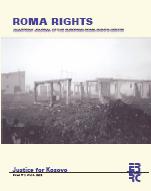
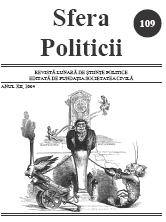
Essey published by L. Patrascanu in "Era Noua" 02 March 1936, publication financed by the Comintern.
More...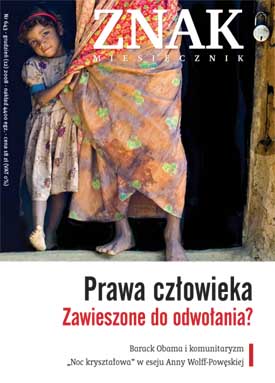


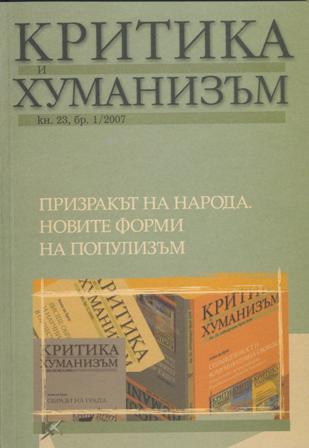
The rhetoric born of the French Revolution and the new concepts of popular sovereignty, public opinion and the rights of the people played an important role in the formation of modern Bulgarian political culture. The purpose of this text is to trace the ways in which the power-holders in the Principality of Bulgaria strove to legitimate their power through ‘the people’ in the 1880s and 1890s. It will try to describe the struggle in the public political sphere as a contest for the right to interpret and represent the ‘will of the people’. The different uses, senses and meanings of the term ‘people’ in the Bulgarian public political sphere in the period under review will be sought and revealed.
More...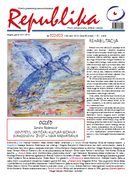
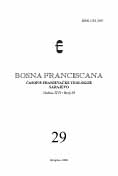
Although relations between Austria and Bosnia as well as confessional history of Bosnian Middle Ages have not been especially thematized in his extensive and valuable work, Thalloczy’s contribution to this problematic is evident. Following the centenarian matrix about the visual relation of Bosnian rulers towards the Holy Austrian Crown Thalloczy has woven into this discourse the thesis about the decisive role of the rulers in political history of the Middle Ages reducing thus the question of overemphasized vassal relation into real frameworks of relations between the so called historical rights and historical realities. His main postulates are contained first in the early phase represented by several works, and then in the later, mature phase, represented by his History of Jajce. On this developmental line one can follow the author’s deepening of the results from accepting earlier conceptions to original insights into the same subject contained in his revolutionary thesis that in the center of Ugric-Bosnian relations and thus also confessional issue which since the emergence of the Bosnian Church suppressed Bosnian rulers and aristocracy there is the position of Bosnian Bishop as the head of Bosnian State Church and potential coronator of Bosnian kings who since middle of the XIII century resided on the territory under the sovereignty of the Holy Crown. On the basis of this rested the patronage right of the Ugric kings over the Bosnian bishopric in Djakovo. This gives the answer to the question about the rights of Ugric kings in Bosnia which established its own alternative, non-canonic bishopric, the Bosnian Church, with its head (pontificate) as the coronator of Bosnian kings. All of this emerged when in late 1416 Bosnian crown was replaced with Pope’s crown and the prelate of the Catholic Church as the coronator of Bosnian kings replaced the pontificate of the Bosnian Church.
More...
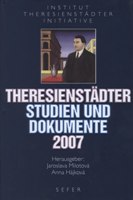
This article focuses on political humor as a Nazi propaganda weapon against the Czech public. After charting the ever-increasing influence of Nazi ideology on Czech Radio in the period 1939-41 and BBC’s responses to it, the author examines the launch of the so-called “political sketches” by a group of Nazi collaborators installed at Czech Radio. The author describes the main goals, and motifs of the propaganda while illuminating the scandal-ridden milieu, in which the sketches were created. Analysis of original broadcast texts portrays the level of humor they provided through to liberation in May 1945. A post-war epilogue is included.
More...
At Auschwitz, Germans were not only perpetrators, as public perception holds. A considerable part of the victims had German citizenship: Jews, Sinti, Roma, and “Aryans.” The article tries to give an estimate of the number of German victims of Auschwitz, analyzes the relatively privileged position German prisoners enjoyed there, the resulting conflicts along national cleavages, particularly between Germans and Poles, and finally, the fate of German prisoners towards the end of the war, on liberation and in its aftermath, when in many instances citizenship, not “race,” decided on the fate of a former German Auschwitz prisoner.
More...

The perspective of mothers and motherhood during the Holocaust presents an important aspect of the tragedy of the Jewish individual and the community. It relates to the history of the family during the Holocaust, to issues of gender and the cultural role of women, wives, and mothers in Jewish societies. The article studies the concept of Motherhood in Jewish tradition and modernity and its complexity during holocaust; it considers mothers of different classes in the ghettos, the difficulties of separation and rescue before and after war start, and the disability of mothers to care for their children under starvation and want.
More...
Arnošt Frischer was the only ethnically Jewish member in the London based Czechoslovak exiled parliament. The main purpose is to document his diplomatic efforts on behalf of the Jews living in the Nazi-occupied Europe. The description follows Frischer’s proposals to ease the plight of the Jews from their initiations, but examines whether they were executed or not. Hence the presented article also touches the issues of the western democracies’ and exiled governments’ humanitarian policies during the War and their responses to the Nazi extermination campaign against the Jews.
More...
The Holocaust problematizes the fundament of historiography, the archive. Therefore, the early testimonies of Holocaust survivors as recorded by the NIOD are of vital relevance. The narratological analysis of these testimonies reveals a referential rupture between interviewer and interviewee. Although these testimonies obviously allow a historiography of the Holocaust, as carried out by e.g. Jacques Presser, they fail to create a general system of statements (Foucault). Nevertheless these early documents shape both historiographical writing and later testimonies like Ruth Klüger’s autobiography. This effect becomes apparent concerning the continuous structuring of testimonies along place names or the uncertain positioning of Theresienstadt.
More...